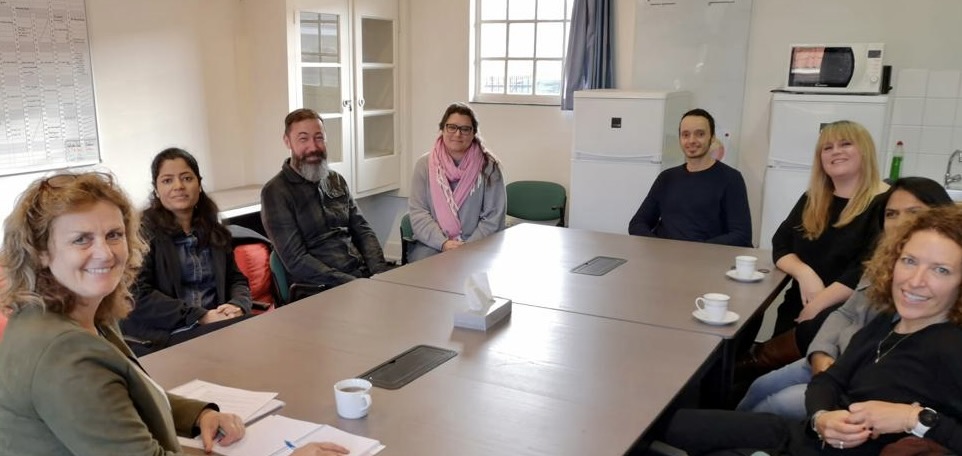2D or not 2D – that is the question
It was such an immense pleasure a few weeks ago to finally be on site carrying out a school audit after conducting all visits, meetings and workshops online since March 2020. A health, safety and safeguarding audit clearly benefits from, and some would say, necessitates a physical visit, despite the herculean efforts of schools around the world creating detailed video tours of their premises highlighting strengths and potential areas for improvement. To walk the campus with someone who knows it well and to be able to ask questions or explore further in real time as a hands-on experience cannot be underestimated. Of course, we have all had to adapt to the challenges of the pandemic and we have thus discovered aspects of our work in school improvement and quality assurance that can be handled without travelling to the school campus that seem to work equally well for the school community and the auditors. Other aspects however are a poor imitation of their former selves.
The sheer joy of spending time with the students to hear their perspective is a powerful motivator to get back to 3D communication as soon as possible. Their ability to express their views, share their ideas and articulate their concerns never ceases to amaze me. Never to be underestimated. Making connections with the stakeholder groups in person rather than through the screen is undeniably easier. Trying to project yourself through the ether and trying to effectively manage groups of children or adults you have never met and who may need translation services have all added to the challenges that we have learned to overcome. It has not been impossible and meeting stakeholders online will continue to be a secure means of hearing the voices of all constituent groups in any school improvement and quality assurance work. Relationship building is key to gaining the breadth and depth of information that is needed to support the auditor’s observations in order to write a relevant and helpful report with supportive recommendations or next steps for improvement. If travel is possible, many client schools will prefer to return to the “old normal”. Or perhaps they will opt for a hybrid version with some work carried out on site and some online. The goal remains the same – to learn as much as possible about the school in order to support its improvement journey and to assure the quality of the school for all stakeholders.
Aspects of health, safety and safeguarding policy and practice are context dependent. Whilst there are what are often referred to as leading practices in these fields, it is also important to understand the local context with its laws and regulations. Some of this documentation may well only be available in the local language of the country where the school is situated. This is especially true of state or national schools that are aspiring to international best practices. Moving a school community forward requires broad and deep knowledge, ample research, and tact and diplomacy. It is not a criticism of the local expectations but more a focus on how a school can continually improve in these key areas without becoming complacent.
With a recent relocation from Europe to Asia under my belt, I witnessed first-hand how the world of travel is determined to open up as fully as possible and as soon as possible. Gradually this will mean more and more countries and jurisdictions will allow visitors onto school campuses to carry out the work of quality assurance in support of school improvement. Some schools will likely still be restricted to carrying out this work in the virtual world for some time to come, while other school leaders and boards will be in the enviable position of having an option – whether to do this important work in 2D or 3D. As COP26 draws to a close, no doubt questions about our carbon footprint will also come into play as well as the question of financial cost. All must be weighed up.
Being a global consultancy, QSIC is able to work in both dimensions – online or on-site, or a combination of the two. Health, safety and safeguarding is but one of our areas of expertise. Health, safety and safeguarding is but one of our areas of expertise; we also provide support and guidance in the areas of governance, leadership and management; mission vision, values and strategic action; human resources and staffing, curriculum and learning, including in bilingual/ dual language settings and boarding and residential services. If you are considering carrying out a quality assurance process and/or planning to offer professional development and training to your staff in any of these areas, do contact us to see how we can support your work. 2D or not 2D is a question for every school, and the decision is in your hands: send a message to set up an exploratory call with us at QSIC via the contact page or email us (caroledenny@qualityschools.net) and we can help determine the best approach for your context, purpose and needs at this time of ongoing challenge.
